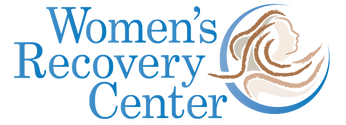Let them Die? No, Recovery is Possible
- Jun 22, 2021
- 2 min read
by Womens Recovery Center
July 6, 2017

On June 23rd Middlefield, Ohio Councilman Dan Picard asked the Village Council if it is necessary to send first responders to calls for individuals that have had three or more overdoses, referring to the stress on first responders and the costs associated with the life-saving interventions. After reading the article it was shocking to read the comments that referred to addiction as a choice and agreed that individuals that are overdosing should be ignored.
More than 60% of the Women’s Recovery Center’s clients are diagnosed as opioid dependent and for 95% of those clients their dependence on opioids was not a choice. It began as a result of a prescription from a physician for a specific treatment course. As the patient began to experience dependence, the opioids were withdrawn with little discussion or planning from that physician or assistance in recognizing the signs and symptoms of withdrawal. As the patient experiences the painful symptoms of withdrawal, they may engage in doctor shopping to secure additional medications or move into the use of illicit drugs. Using a prescription as recommended in the manner prescribed by a physician should not be perceived as a choice.
The second argument that frequented the comments for allowing individuals to die was the cost and the unfairness that the life-saving medication is free. Narcan is not free. When an overdose occurs, the patient’s insurance or Medicaid is billed for the ambulance transport and for the administration of Narcan. An overdose is treated and billed as all emergencies are billed.
It is easier to think in these harsh realities when discussing addicts. Recognizing that we are discussing individuals that are addicted to opioids or any other substance is very different. In the late 1950’s, addiction was recognized by the American Medical Association as a disease. Allowing an individual to die is not the answer. It is important to understand that these individuals are mothers, daughters, sisters and friends. There are more than four hundred families in Cuyahoga County that have suffered a devastating loss to fatal overdose. Comprehensive addiction treatment is the answer. Watch Jennifer and Joann discuss their daughters’ recovery. Their daughters serve as examples that recovery is possible.





Comments